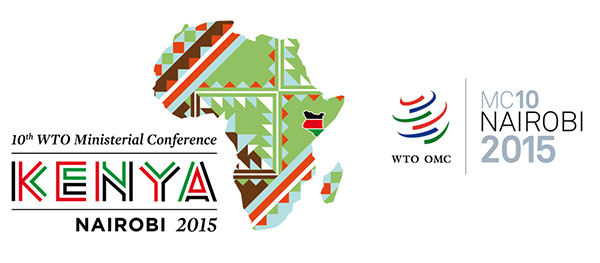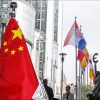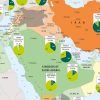
It has gone largely unnoticed, but late last year the ministerial meeting in Nairobi of the World Trade Organisation (WTO), in which 164 countries took part, quietly consigned the Doha Round to the grave, after 14 years of more or less futile efforts. Its aim was originally to give a further boost to international trade liberalisation. Known as the ‘development round’, the intention was to reduce trade barriers, albeit unevenly between industrialised and poorer countries, whose products would see their penetration capacity diminished. Initiated in 2001, two months after the September 11th attacks, at the meeting in the Qatari capital subsequent to the Uruguay Round, it was supposed to be finalised by 2005, among other things reducing export subsidies for agricultural products. That is at least one thing that has been agreed upon, relatively speaking, in Nairobi, along certain progress has been made on other issues as well. But the idea of a grand agreement is now defunct.
The confrontation between the US and the EU on the one hand and the large-scale emerging economies such as China, India and Brazil –which during these years have become major exporters, prompting the former to ask them to lower their import barriers– on the other, has killed off the Doha Round. Those to suffer the most will, once again, be the poorest countries, essentially the African ones. It is paradoxical that this should have come about at the Round’s first meeting in Africa, where for the first time references in the final declaration to ‘reaffirming’ the Doha mandate have been dropped, although a few references to the Round and the decisions adopted –by consensus in the WTO– in Nairobi have been included.
Many things have changed from 2001 to the present day. To begin with, China has emerged to become the world’s second-largest economy (or even the first, according to some estimates), but for the WTO’s purposes it is still considered a developing economy (which it partly is), exempting it from many obligations, something Beijing would like to keep that way.
Moreover, the Great Recession has had a significant effect. According to data from UNCTAD (the UN Conference on Trade and Development), although contrary to the 1929 crash there have been no protectionist knee-jerk reactions, world trade fell sharply by 12% in 2009 as a result of the crisis. It rose again the following year but since then its growth has been pretty much anaemic. Since 1990 world trade had been increasing by 5.5% annually, ie more than the economy, but in 2014 it was only up 2.8%, is expected to grow by 3.3% in 2015 (although it could be lower on account of China’s slowdown, the fall in raw material prices and the consequent sluggishness of the emerging economies) and could clock up at around 4% in 2016.
The Doha Round has scored some successes, like the 2013 agreement on trade facilitation procedures and the continuing attempt to eliminate tariffs on goods such as wind turbines and solar panels. And perhaps the WTO will continue to make progress on more specific and limited general agreements than the one coveted since 2001, as in Nairobi. While multilateralism in global trade is in crisis, preferential bilateral agreements outside the WTO have proliferated, driven by the advanced economies. Many developing countries have preferred such a solution to waiting for a general agreement that never materialises.
Above all, what are multiplying, with significant geopolitical effects, are regional trade agreements. The main one so far has been the Trans-Pacific Trade Partnership (TPP) signed (but not yet ratified) by the US, Japan and 10 other countries. The Transatlantic Trade and Investment Partnership (TTIP) between the US and the EU is still on course but mired in complex negotiations. China, meanwhile, is promoting an agreement in its own backyard with other 16 countries, including India and Japan. Nevertheless, world regionalisation of the world, although positive, does not forego the need to achieve wider, truly global agreements.
All these events are just part of a process of a world-wide redistribution of power. The demise of the Doha Round has been seen as a triumph for the US and the EU, who considered that the negotiating paralysis was deflating the WTO’s weight and importance in a global economy that is greatly changed since 2001. The US Trade Representative, Michael Froman, announced on 18 December in Nairobi the ‘death of Doha and the birth of a new WTO’. In fact, the WTO’s members have agreed to enter into new areas such as the digital economy. Roberto Azevedo, its Director General, considers that despite the differences highlighted in Nairobi, much concrete progress has been made.
At any event, it seems that a global idea has in any case wilted away, to be replaced by a sum of regional ideas.


